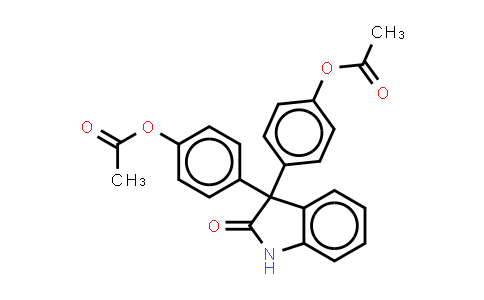
Oxyphenisatin acetate
| 화학 이름 | Oxyphenisatin acetate |
|---|---|
| 화학 이름 | Oxyphenisatin acetate |
| CAS 번호 | 115-33-3 |
| MDL 번호 | MFCD00022793 |
| 분자식 | C24H19NO5 |
| 분자 무게 | 401.41 |
Introduction of 115-33-3 :
Oxyphenisatin acetate, the pro-drug of oxyphenisatin, is used to be a laxative. In Vitro: Oxyphenisatin acetate inhibits the growth of the breast cancer cell lines MCF7, T47D, HS578T, and MDA-MB-468. In the estrogen receptor (ER) positive MCF7 and T47D cells, oxyphenisatin acetate induces TNFα expression and TNFR1 degradation, indicating autocrine receptor-mediated apoptosis in these lines. Ten micromoles per liter Oxyphenisatin acetate treatment results in autophagy and mitochondrial dysfunction[1]. In Vivo: Oxyphenisatin acetate (300 mg/kg, i.p.) delivers intraperitoneally inhibited tumor growth, accompanied by phosphorylation of eIF2α and degradation of TNFR1 in an MCF7 xenograft model[1].
| 청정 | NLT 98% |
|---|---|
| 저장 | at 20ºC 2 years |
*위의 정보는 참고 용입니다.